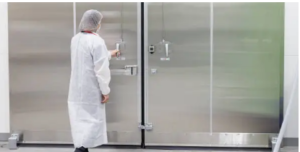Industrial Refrigeration Melbourne: Ensuring Efficiency and Sustainability
Industrial refrigeration is a critical component in various sectors, including food and beverage processing, pharmaceuticals, chemical manufacturing, and logistics. These systems are specifically designed to manage and maintain the precise temperature control necessary for preserving products and ensuring safety standards. As industries expand and modernize, especially in bustling cities like Melbourne, the demand for advanced and efficient industrial refrigeration systems continues to grow.
 The Importance of Industrial Refrigeration
The Importance of Industrial Refrigeration
Industrial refrigeration systems are engineered to handle large-scale cooling and freezing requirements. Unlike residential or commercial refrigeration, these systems are designed to operate continuously under high-load conditions, ensuring the integrity and quality of products over extended periods.
- Food and Beverage Industry: One of the primary users of industrial refrigeration, this sector relies on consistent temperature control to prevent spoilage, extend shelf life, and comply with stringent food safety regulations. From dairy products to frozen goods, precise refrigeration ensures that consumers receive fresh and safe products.
- Pharmaceuticals: The pharmaceutical industry requires meticulous temperature control for the storage and transportation of medicines, vaccines, and biological products. Industrial refrigeration systems ensure these sensitive items remain effective and safe for use.
- Chemical Manufacturing: Many chemical processes require specific temperatures to maintain product stability and safety. Industrial refrigeration helps manage these processes, ensuring consistent quality and performance.
- Logistics and Distribution: The global supply chain for perishable goods depends heavily on reliable industrial refrigeration. Cold storage warehouses and refrigerated transport systems keep products fresh from the point of origin to the end consumer.
Industrial Refrigeration in Melbourne
In a vibrant and growing city like Melbourne, the demand for robust industrial refrigeration systems is on the rise. Industrial refrigeration in Melbourne is crucial for supporting the city’s diverse industries and ensuring that products are stored and transported under optimal conditions.
- Growing Food and Beverage Sector: Melbourne’s food scene is renowned for its quality and variety. Industrial refrigeration in Melbourne supports local producers, restaurants, and supermarkets by maintaining the freshness and safety of food products.
- Pharmaceutical Hub: With a growing pharmaceutical industry, Melbourne requires advanced refrigeration systems to support the storage and distribution of medical products. These systems are particularly important for maintaining the efficacy of temperature-sensitive vaccines and medications.
- Innovation and Sustainability: Melbourne is at the forefront of adopting innovative and sustainable technologies. The industrial refrigeration sector in Melbourne is increasingly focusing on energy-efficient systems that reduce environmental impact and operational costs.
Key Components of Industrial Refrigeration Systems
Understanding the components of industrial refrigeration systems can help businesses make informed decisions about their cooling needs.
Trends and Innovations in Industrial Refrigeration
The industrial refrigeration sector is continuously evolving, driven by technological advancements and increasing environmental concerns.
- Energy Efficiency: Modern industrial refrigeration systems are designed to be more energy-efficient, reducing operational costs and environmental impact. Innovations such as variable speed drives and advanced control systems contribute to significant energy savings.
- Natural Refrigerants: There is a growing shift towards using natural refrigerants like ammonia, carbon dioxide, and hydrocarbons. These refrigerants have a lower environmental impact compared to traditional synthetic refrigerants and are becoming more popular in industrial applications.
- Smart Technologies: The integration of smart technologies, such as IoT sensors and AI-driven analytics, allows for real-time monitoring and optimization of refrigeration systems. These technologies enhance performance, predict maintenance needs, and reduce downtime.
- Sustainability: Sustainability is a major focus in Melbourne’s industrial refrigeration sector. Companies are investing in systems that minimize greenhouse gas emissions and comply with environmental regulations. This commitment to sustainability not only benefits the environment but also enhances corporate reputation and competitiveness.
Choosing the Right Industrial Refrigeration System
Selecting the right industrial refrigeration system involves several considerations:
- Capacity and Scale: Ensure the system can handle your current and future cooling needs. Consider both the volume of products and the required temperature range.
- Energy Efficiency: Opt for systems that offer high energy efficiency to reduce operational costs and environmental impact.
- Reliability and Maintenance: Choose systems from reputable manufacturers with a proven track record of reliability. Regular maintenance is crucial for optimal performance and longevity.
Conclusion
Industrial refrigeration is an indispensable aspect of various industries, ensuring the quality, safety, and efficiency of products and processes. In a dynamic city like Melbourne, the demand for advanced and sustainable industrial refrigeration solutions continues to grow. By staying informed about the latest trends and technologies, businesses can choose the right systems to meet their needs and contribute to a sustainable future.

